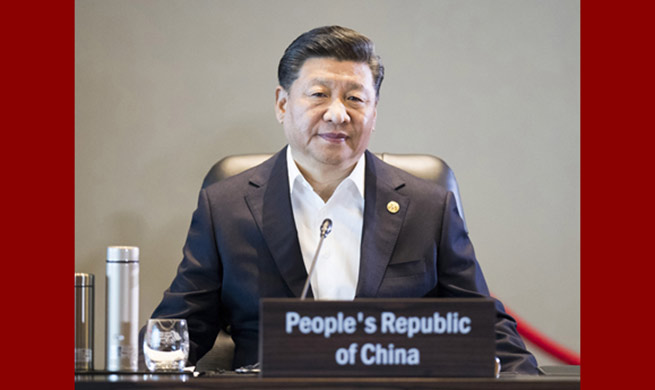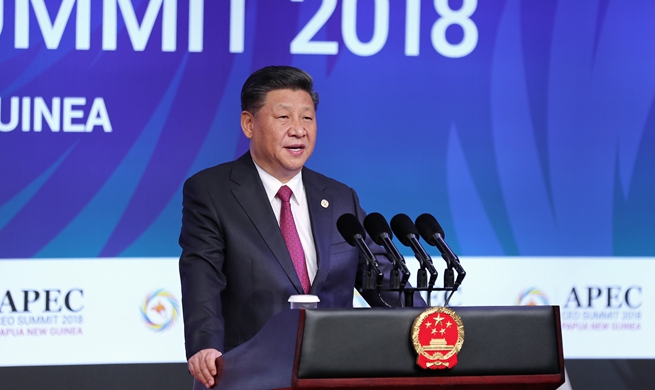ROME, Nov. 19 (Xinhua) -- Italy's banking association (ABI) on Monday warned that the country's economy would suffer if the sovereign borrowing costs remained at the high level recorded in latest months due to political uncertainty.
The spread at over 300 basis points was "not consistent with the fundamentals of (Italy's) economy", ABI deputy Director-General Gianfranco Torriero told a seminar in the northern city of Ravenna.
The official referred to the yield differential between Italian and German 10-year benchmark bonds, which is a key indicator of investors' confidence in the solidity of the euro-zone third largest economy.
The higher the spread, the lower the market confidence, and the more Italy would have to pay to borrow money.
The differential was at around 130 basis points before general elections held on March 4, which gave way to a right-wing government that soon engaged the European Union (EU) in a row over the 2019 budget.
It has kept increasing in these months up to over 300 basis points (311 registered on Monday.)
If not reduced, such spread would affect the productive system starting with "an impact on the capital of banks, then a rise in the cost of bank deposits and therefore a rise in the cost of loans to families and businesses", ABI deputy director-general stressed.
Torriero added Italian lenders were so far able to avoid such negative spiral thanks to the supportive measures implemented by the European Central Bank (ECB).
In a statement in the second half of October, the chief of the banking association already sounded the alarm over the widening spread, saying it was "worsening the outlook for (Italy's) public finances and making productive activities of households and firms more complicated".
"We hope for a more constructive debate between Italian and European authorities in order to overcome this climate, which is damaging the economy," ABI President Antonio Patuelli said at the time.
At the seminar on Monday, Patuelli further explained a rise by 100 basis points in the BTP-German bond yield spread would erode the Common Equity Tier 1 of Italian major banks by an average 35 basis points, according to ABI projections.
The Common Equity Tier 1 (CET1) capital ratio is a key measure of lenders' financial solidity.
"However, the specific critical threshold for each bank is hard to define... only the Bank of Italy and the ECB can evaluate it, having an overview of all the variables of every bank," Patuelli specified.
The yield spread between Italian and German bonds started growing in May, and kept floating at around 300 points or beyond since a new right-wing government -- a coalition between anti-immigrant League and populist Five Star Movement -- started its office in early June.
The row with the EU Commission began when the Italian government submitted a 2019 draft budget that was outlined in order to deliver on campaign promises, and especially to create a universal income and to increase public spending to revamp economy.
The result was a budget deficit target of 2.4 percent of gross domestic product (GDP), which the Italian government refused to change.
The draft budget was rejected on Oct. 23 by the EU Commission, which argued the draft was based on unrealistic growth projections, and did not comply with EU fiscal rules that demand from each country a reduction of public debt, if above 60 percent of GDP.
Italy's debt was about 131 percent of GDP in 2017, the second largest ratio in the EU after Greece.
The widening yield spread impacts directly on Italian banks since national lenders hold 369.3 billion euros (423.2 billion U.S. dollars) of government bonds, according to statistics released by the Bank of Italy in September.













